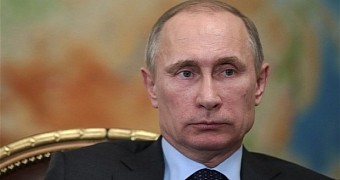Vladimir Putin has previously tried to force overseas technology companies to keep data about Russian users in local facilities and to move all their activities to facilities in the country, and now he’s having another shot at his plan with help from his newly appointed Internet advisor.
German Klimenko, who’s now Putin’s number one advisor regarding anything related to the Internet, has started a new campaign against technology companies, claiming that they should pay more taxes in Russia while also attempting to pave the way for a switch off Windows.
First of all, the new Internet czar, who was appointed six weeks ago, wants to support local companies such as Yandex and Mail.ru, so he is now pushing for a bill that would add an 18 percent tax to revenues of tech giants overseas, including Apple, Microsoft, and Google.
“We are breeding the cow and they are milking it,” Klimenko was quoted as saying by Bloomberg.
“When you buy an app from Google Play or the App Store anywhere in Europe, VAT is charged at the place of payment, but not here in our banana republic.”
Banning Windows
Part of his plan to give an advantage to local companies is to ban Windows in the country and then push for a migration to Linux.
The government will be the pioneer of the transition to Linux, Klimenko says, and 22,000 municipal authorities are already prepared to give up on Windows and go the open-source way. While a reason for the transition off Windows wasn’t very clear, it’s believed that Russia wants to give up on Microsoft’s operating system amid claims that the company could provide the US government with information stolen from Russian computers through its software.
“It’s like a wife seeing her husband with another woman - he can swear an oath afterward, but the trust is lost,” Klimenko said.
Certainly, there’s a long way until we see Windows going dark in Russia, but until this happens, it’s worth knowing that Microsoft’s operating system powers more than 93 percent of the desktop computers in the country.

 14 DAY TRIAL //
14 DAY TRIAL //